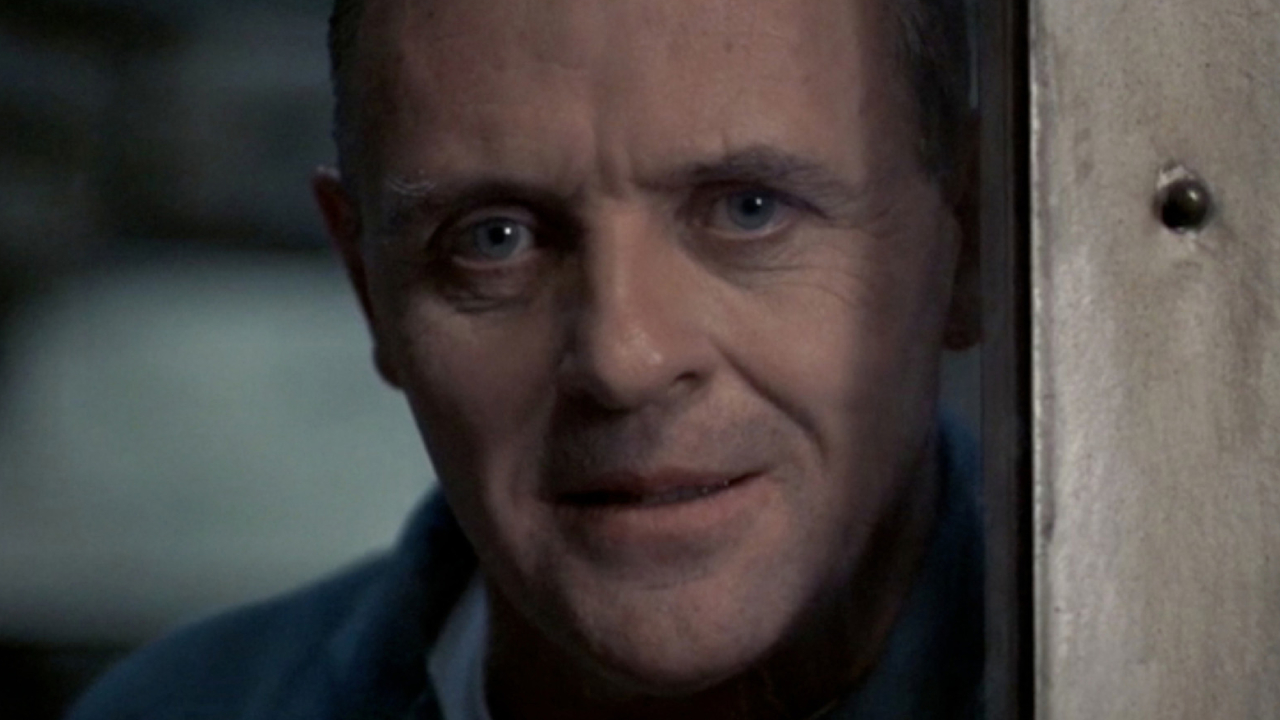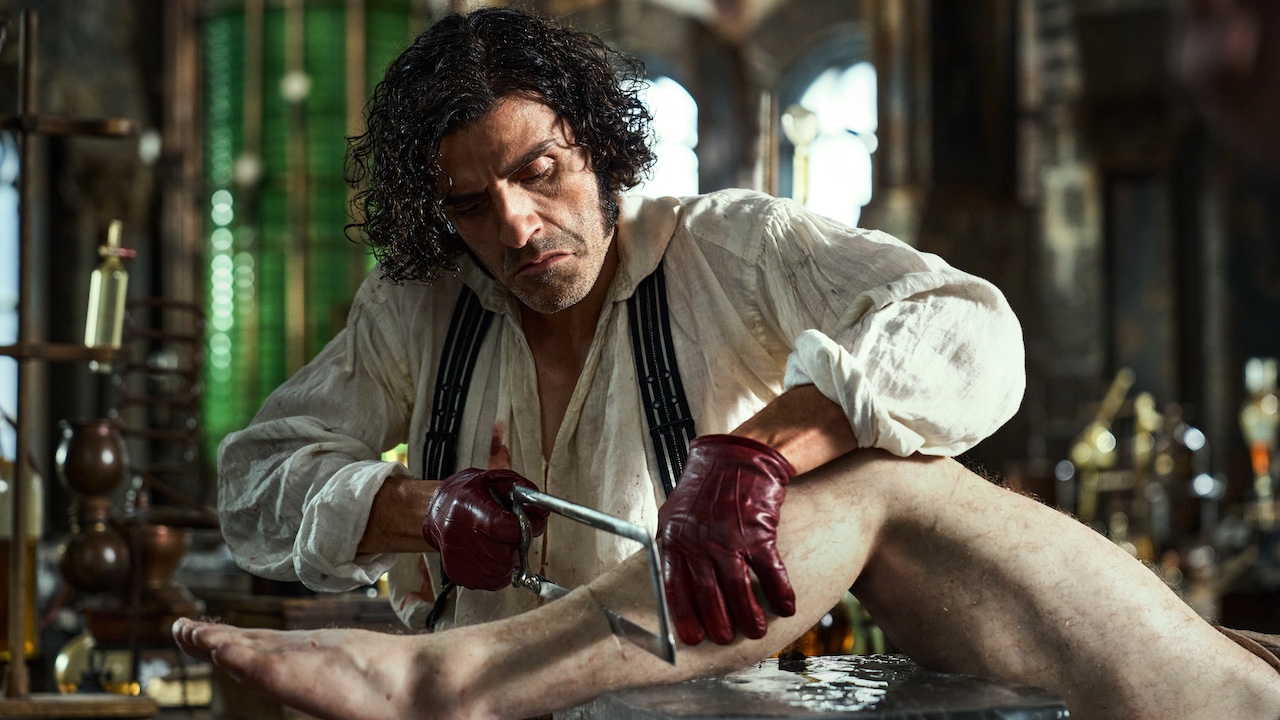Interview: Anthony Hopkins

They say there are no second acts in America, but maybe when you’re born in Wales you can bend the rules. Hell, maybe when you’re Anthony Hopkins, the rules don’t even exist. Having made a decades-long career as one of the most indelible actors on film (most of us can’t even see the word “Chianti” without thinking of him as Hannibal Lecter), Hopkins taking on a new role: independent auteur. Though he’s directed two films before, with Slipstream he’s not only directing his own screenplay, but he wrote the music and stars. It’s a no-brainer to say this is a personal film, but Hopkins draws from both his career—there’s a sly nod to the Dreamworks logo—and his personal life to create his film, about a screenwriter whose mind, on the verge of implosion, merges with his characters in a highly surreal, non-linear way. There are bound to be plenty of people left scratching their heads after this film, but Hopkins is staunchly against explanations; he’ll go just far enough to tell you it’s a look inside his brain.
Sitting in on a roundtable interview with Hopkins is another kind of look inside the man’s brain—he jumps effortlessly from discussing JFK’s grave to Hitler’s bunker, and off-handedly explains his belief that time is God, and God is time. I’m not sure it makes sense to me even now, but the man speaks with such conviction that you can’t help but believe him. This is a very condensed version of his 45-minute interview—twice the length of a usual roundtable, by the way—which unfortunately can’t do justice to some of the best details. Feel cheated on your in-depth look at Anthony Hopkins? Well, I suppose seeing Slipstream is the only way to solve that one.
How did you decide to write this film?
I’d come to a stop. You get to a point where you work work work and to what end? My wife said ‘Why not write a script of your own instead of doing other peoples?’ I said no, being lazy by nature. [Hopkins began to write and started his scene on a freeway]. “We’re living in a strange age, of such strange impact. We always have, it’s not just today. […] It started writing itself really, its all connected itself. I didn’t make much conscious decision. The scenes sort of ran themselves. […] I didn’t set out to write, because I’m not a writer. I’m not a novelist or a poet. I can write a letter, that’s about it, so I can’t write. I didn’t set out to make an impression of great writing, and I wasn’t trying to create a message or a statement.
[Hopkins wrote a scene in which several characters hijack a diner, but didn’t feel the need to explain why.] Everyone today has to have explanations for everything. They do a film school thing—explain how you get to that point. [Someone asked me] ‘How do you make that choice.’ I don’t know. Everyone has to have explanations, everyone wants to analyze everything nowadays. [When writing scene between Christian Slater and Jeffrey Tambor, Hopkins wanted Slater’s character, an actor, to give up and recognize that he was in a film.] “I was interested in stepping like Brecht from what they were saying and saying this is the theater it’s not reality. That’s Stanislavski, it’s an alienation. [Realizing you are watching a movie] its like when you wake up from a dream, it’s probably what death will be like. You say ‘Ah, that’s what that was all about.’ […] That’s what I wanted to get in this film. Of course, it goes deeper and deeper. The man is actually experiencing a state of limbo, and it’s all flashing in the dying neurons in his brain.
I’m interested in the dream and subconscious mind, the peculiar dream-like quality of our lives, sometime nightmare quality of our lives. It’s all an illusion. Without making that statement, that’s what I did. Then the film at the end, movie is the metaphor for life for me. I’m interested when I watch a movie, that just off camera, there are lights, microphones, crew trucks, craft services […]—it’s all an illusion. And at the end they say “That’s a wrap everyone,’ and everyone goes to a different place, and that’s the end of our lives. And the whole thing runs backwards because it’s all a joke.
[Hopkins based a scene in the film, in which a shootout takes place on a freeway, on a real shootout he saw in Los Angeles on his first trip to the United States in 1973. Realizing that Hopkins was British, a cop on the scene said to him ‘Welcome to America.’] That’s why that scene is in there. That was my first impression of America, the kind of chaos, the extraordinary power that’s unleashed this country. The bad, good—all the wrong reasons. To me it’s fascinating, the driving force here in America.
Your Daily Blend of Entertainment News
What is the best explanation you give for your goals in making this film?
We all dream. We dream vividly, depending on our nature. Our existence is beyond our explanation, whether we believe in God or we have religion or we’re atheist. Our existence is beyond our understanding. No one has an answer. I sense—I can’t say I believe because belief is concrete—I sense that it all is an illusion. I sense that life is such a mystery. For me time is God, God is time.
My mother died, and it brought me to an understanding that I ought to really look back at my life instead of rushing forward all the time […] I believe that everything is illusory, because we can’t grasp anything. I’m fascinated by the fact that we can’t grasp anything about time. The magical, supernatural force that is with us every second is time. We can’t even comprehend it. It’s such an illusion, it’s such a strange thing.
For me time is the greatest mystery of all. The fact is that we’re dreaming all the time. That’s what really gets me. We have a fathomless lake of unconsciousness just beneath our skulls.
When you make films playing different characters, how many elements of those characters work their way into your own subconscious?
Acting students ask me—I was at the Actor’s Studio the other night with James Lipton—a student asked me “How do you get into the soul of the character?” You can’t, it’s impossible, it’s a fiction. Even with a real character like Nixon, you can’t, because it’s always you. Acting is just a process of relaxation, actually. Knowing the text so well and trusting that the instinct and the subconscious mind, whatever you want to call it, is going to take over. [Hopkins compares acting to the instinct of walking, or driving a car.] It’s extraordinary—a child learns to walk, but we get up every morning and just walk. That’s what acting to me is like. I know that there’s a camera there. Stanislavski said you cannot think that there is no audience, there is, and you have to be aware of it. He said of course it’s not reality. You have to have a technique. You become a vessel for [the character]. That’s all that is. […] We live in a world of make-believe, we live in a world of masks.”
I didn’t want to make any statement, political, sociological, philosophical. It’s my personal thumbnail sketch of my own inner life. That’s all it was meant to be, no more no less. It’s very personal to me. I didn’t want anyone touching it, editing it. I had a great editor, Michael Miller. […] I just want to poke people in the head, to say ‘Come on! Wake up!’ We go into a state of hypnosis anyway when we’re in a movie theater. […] You’re in a state of suspended animation watching a movie. We willfully put ourselves in a state of hypnosis in the theater.
Were you inspired by any other films for the style here?
Last Year at Marienbad, actually. The films that I really like were the film noir movies […] Those film noir things just got to me as a kid. A film that’s non-linear, Burt Lancaster in The Killers. One of my favorite movies with Lancaster is the swimmer. None ofit makes sense—in one day his whole life is destroyed. It’s an electrifying film.
How was it working as both a director and an actor?
The actors—Christian Slater, John Turturro, they just went for it. Christian Slater knocked two days off the schedule because he was so adept and so terrific. [… During one scene] I thought, this guy is taking over the film. I just pointed the camera at him. I said to Dante, the camera operator, just follow him around with the Steadicam. He did that within three days. He just knocked it out of the ballpark. It was an extraordinary performance. […] And John Turturro the same. He just went to hell in a handbasket with the whole thing.”
Another great performance is Michael Clarke Duncan. He took me by such surprise, not that I expected anything but a great performance from him. He did it so differently, too. He was so good that I forgot my lines. [Hopkins proceeds to do a dead-on impression of Michael Clarke Duncan, from which the only line I can hear is “Hey Tony, I don’t know what this movie’s about,” because everyone is laughing too hard.]
Why did you choose to film in the desert? I’d always wanted to do a film in the desert, because I love that film Blood Simple. I think the desert is the most terrifying place and the most beautiful place, and it’s the place where all the guys used to go to experience enlightenment. It’s the place of no-man’s land. There’s something really extraordinary about it..
Since you’ve made such a daring and different film, do you read Hollywood scripts now and get tired of them? No, no. Some are not that good, but no. I get a bit tired of the same old formula, you know, but some wonderful actors are doing that. But it’s, how many more gangster films can you see? How many more love stories can you see? It’s all escapism. But I just wanted to do something really provocative and daring, and maybe annoy people, make them irritable.
Staff Writer at CinemaBlend

